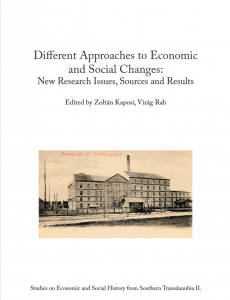Réka Horeczki
Operational Structure of the Hungarian Royal Agricultural Schools – the Example of Somogyszentimre
 Abstract
Abstract
The purpose of the study. Exploration of a major milestone in the development of small towns. Presenting the role of education through the example of the agricultural vocational school in Somogyszentimre, a settlement attached to Kadarkút.
Applied methods. The analysis of literature ranges from a review of education policy to factors driving the development of small towns.The study heavily relies on archival research instrumental in shedding light on the everyday life of the educational institution, and the identification of factors demonstrating a unique and innovative approach.The biographies of individuals affiliated to the institution have provided an equally valuable contribution.
Outcomes. The dominance of agriculture has permeated the socio-economic history of small towns in Somogy county in all spheres of existence. Small town economies and societies were greatly enriched by their commercial and industrial functions (industrial plants), the right to hold fairs, and educational institutions connected to agriculture. The educational institution by virtue of its students, teaching staff, owners and patrons was a major trigger of development in small towns. Agricultural vocational schools besides providing theoretical training also familiarised students with novel and innovative practical approaches. This type of approach was embraced by small town farmers, generating an innovative, development-oriented vision that still characterises the majority of small towns in Somogy county today.
Keywords: agricultural, small town, education, innovation, development
In: Zoltán Kaposi; Virág Rab (szerk.): Different Approaches to Economic and Social Changes: New Research Issues, Sources and Results. Pécs: Working Group of Economic and Social History Regional Committee of the Hungarian Academy of Sciences in Pécs, pp 77-83 (2022) (Studies on Economic and Social History from Southern Transdanubia 2732-3048 ; II).


